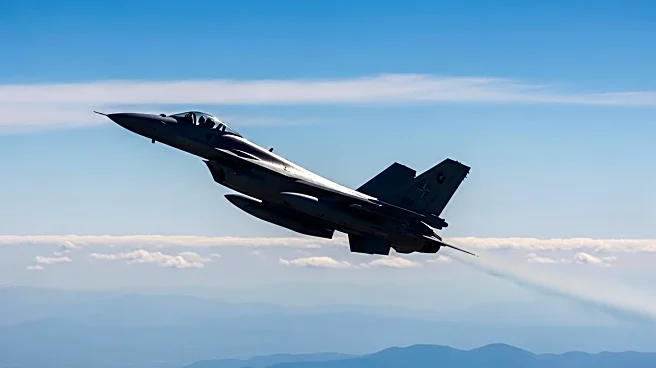What's Happening?
NATO is increasing its aerial surveillance in the Baltic Sea region following a series of airspace violations by Russian aircraft. The incidents have prompted NATO allies, including France, Germany, and Sweden, to bolster Denmark's air defenses. The situation has sparked a debate among NATO members on the appropriate response, with Poland advocating for the use of lethal force against intruders, while others urge caution. The violations are seen as a test by Russia to gauge NATO's response capabilities, placing financial and strategic pressure on the alliance.
Why It's Important?
The airspace violations highlight the ongoing tensions between NATO and Russia, with potential implications for regional security and international relations. NATO's response will be critical in maintaining the balance between deterrence and escalation. The situation also underscores the challenges of coordinating a unified response among NATO's diverse member states, each with its own strategic priorities and risk assessments. The incidents could influence future NATO defense strategies and resource allocations, particularly in the context of air defense and surveillance capabilities.
What's Next?
NATO's supreme commander in Europe, U.S. Gen. Alexus Grynkewich, will play a key role in managing the alliance's response to the airspace violations. The situation may lead to increased military deployments and strategic planning within NATO. Additionally, the incidents could prompt further diplomatic engagements with Russia to address the underlying tensions. The outcome of these developments will be closely watched by international stakeholders, as they could impact broader geopolitical dynamics in the region.










